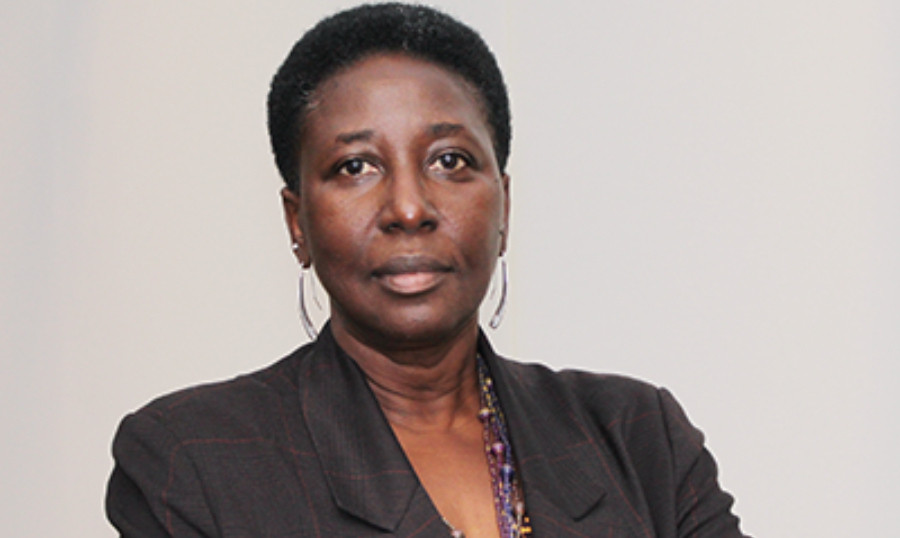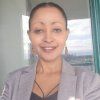According to Debbie Douglas, Black, Indigenous, and racialized people are disproportionately impacted by climate change, “When we look at the Global South, we notice rising ocean temperatures, more floods, longer drought periods, destruction of crops, leading to famine and all of those kinds of things,” she says.
Douglas is particularly concerned about island nations that might be swallowed up by the rising temperature in the oceans. She argues that climate refugees must be recognized as in need of protection and be granted asylum when the need arises because their lands have become inhabitable.
In connection to this, Douglas asks key questions such as:
⦁ In our international investments and development, who are we partnering with in the Global South?
⦁ Are we ensuring that our investments are going directly to on-the-ground organizations that are led by the people for the people?
Douglas also calls to end environmental racism in Canada as it disproportionately affects Indigenous communities, for example the long-term boil water advisories.
Who is Debbie Douglas?
Debbie Douglas was born in Grenada and came to Canada when she was 10 years old. Douglas grew up in the 70s - a period marked by the Black liberation movement. She's a feminist who defines feminism as, “The answer to the patriarchy, regardless of how that patriarchy manifests.”
Her guiding principle on feminism is that it should, "Ensure equality for women, including trans women and non-binary folks. Feminism ensures that everything from policies to programs to language does not denigrate women, their experiences, and their accomplishments. It’s a theory and a practice that centres women and works towards the elimination of misogyny and sexism. It must be intersectional recognizing specificity of experiences of women living at various intersections like gender and race."
Douglas has been politically active and engaged in the LGBTI and Black feminist communities for many years. She has been greatly influenced by both the Black community and Toronto's multiracial community.
“I think it starts with my aunt Mary, who preached political activism to us growing up and who along with many of my cousins and others were active in the Greneda Revolution of 1979. Besides, our family belongs to a strong faith community and we were expected to participate in and give back to our community in addition to succeeding academically and in other areas of our lives,” says Douglas as she explains her influences.
After becoming the student council president and having the unconditional support of her first Black teacher in high school, Douglas felt there was nothing she couldn't accomplish.
In addition, she met Black Lesbian-Female activists in her early twenties who shaped her political ambitions regardless of which spectrum of activism they were engaged in, this includes the progressive left, queer communities, and the anti-racism movement - all of these are part of her influences.
“We had a radical community that empowered us to fight racism and other forms of oppression in all spheres- whether it's in the school system or the corporate world or the non-profit sector,” explains Douglas.
Humanitarian and Social Justice Work
Douglas has worked on a number of social, economical, and political issues in her career. Issues of migration, race, gender, queerness, and poverty informed who she is and what she does in her work.
“I believe I’m blessed for getting paid to do what I’m passionate about,” says Douglas.
Some of her notable experiences and achievements include:
⦁ She designed and delivered anti-oppression workshops for different organizations and public sector institutions.
⦁ She was actively engaged in the early 1990s in public discussions and debates on employment equity and the establishment of anti-discriminatory systems in public institutions, particularly the public school system.
⦁ She played a pivotal role in the creation of Ontario’s first shelter for abused immigrant women in the late 1980s.
⦁ She has highlighted issues of sexual orientation in the immigration system and promoted the creation of safe, welcoming spaces within settlement and integration programs and services.
Pressing Needs
Douglas believes there are a number of social and humanitarian challenges that demand immediate attention: “From racial and economic justice to food security, the affordable housing crisis and gender-based violence, to issues of homophobia and transphobia, there is much work to be done,” she says.
She also discusses the exploitation of people who go through the migration system that discriminates based on racism and continent of origin. “Canada currently uses DNA testing for African applicants to prove familial relationships,” she states.
Douglas explains how the Canadian Immigration practice of disproportionately DNA testing applicants from Africa more than in any part of the world is an example of anti-Black racism in practice and regulations. "This over-testing and questioning of familial relationships of sponsorship applications from African countries must be discontinued," she says. In addition, she calls for a review of the narrow definition of family (parents and blood-related or formal adoption children).
Douglas also shared an example of how racist assumptions in immigration processes can negatively impact racialized women. She explains how the previous federal Conservative government introduced a two-year conditional sponsorship of spouses.
“This arrangement forced women into situations where they have to live with their abusers and violence. We finally got the government to recognize this and eventually the government made an exception for women experiencing abuse,” explains Douglas. Fortunately, after much advocacy by organizations like the one Douglas leads, this regulation was eliminated.
Further, Douglas raised the issues of Black queer people who are fleeing persecution in their countries of origin but are often kept in limbo here and must prove their sexuality based on very Western concepts, languages and action.
Douglas explains how the Immigration and Refugee Board (the Board and its members who decide on refugee claims), often look for western expressions of coupledom (photos with two people holding hands for example), proof of a shared home (which is not possible in many Global South countries given anti-LGBTI+ laws and public sentiment). In addition, Douglas explains, "Not all men who have sex with men name themselves “gay” or women name themselves “lesbians”. In fact, often there is no singular naming of one’s sexual identity/orientation."
Often not being able to fit within the Board members' notions of homosexuality and its expression leads to a denial of claims and the persons deported to harassment and harm or left without immigration status if they decide to stay in Canada due to the fear of persecution/ prosecution or worse in the home country.
Much work has been done with the Immigration and Refugee Board (IRB) on this issue with the issuing of guidelines on determining asylum cases based on sexual orientation and gender identity and expression as well as training on country conditions, etc.
Douglas is also very much concerned that racism is deeply rooted in the humanitarian sector.
“Racism is embedded in the nonprofit sector in Canada and it plays out. Only recently have these organizations changed their tone with regard to anti-Black racism, anti-Asian racism and other racisms,” she stresses.
Until a decade ago, she was the only Black person for many years at a senior level on immigration and settlement at the national level.
“Most leaders of nonprofit agencies in Canada are white. It’s only in the last five years that the government department itself has had Black people at the director-general level and higher. Racism also exists among leaders and clients. Some clients actually say that they don't want to deal with a Black person as their counsellor or worker,” says Douglas.
Douglas faces a double challenge in her career and activism. The first is trying to hold government accountable, ensuring they live up to their rhetoric and make meaningful public policy changes. The second is changing hearts.
“In spite of policy changes, if folks are going to be racist, their practices are going to be racist. I've gotten to a point in my life where I don't care if someone dislikes me because of the colour of my skin. However, I take issue when that racism has an impact on my life. This is why public policies are so important. Monitoring and enforcement of these policies are also important,” underlines Douglas.
Meanwhile, Douglas also highlights the fact that people must recognize social justice and nonprofit work as real and valuable work.
“Nonprofit doesn't mean people are not professional and don't want to be paid competitive wages. Part of our work in this industry is being responsive to community needs and compensating everyone for their work,” explains Douglas.
Douglas would also like to highlight the recent challenge facing the humanitarian sector as a result of the COVID-19 pandemic.
“The pandemic certainly had a detrimental impact on women, primarily on immigrant and racialized women. While the immigrant and refugee serving sector funded by federally and provincially in Ontario have seen little disruption in their funding, other programs and services haven't fared as well. Many have experienced significant drops in private donations for example. Individual women who have lost their jobs or have been forced to leave because of a lack of affordable and adequate child care have not seen enough support from the government,” she explains.
She adds that shortage of funds resulted in an increase in the number of mergers and a few organizations had to close their doors. Besides, most clients in the sector do not have the technology needed to get the support of these programs online. As well, many of the people in the sector are themselves immigrants often living in multi-generational households who do not have a conducive space to work remotely from home.
Douglas’s experience and contributions in society have earned her several awards and distinctions, but she is most proud that OCASI is unapologetically progressive, anti-racist, inclusive and that it pays attention, and sees its role as enabling those who are fighting for social justice.
“We care about justice for all. We push for public policy changes around immigration status, migrant women, and deportation. We fight for those who are the most vulnerable. We are ensuring that those organizations and communities that represent them have access to resources that their priority policy issues are heard.”
Outside of her work with OCASI, Douglas is very proud of her family and her advocacy work around Black and women's liberation. She is also very proud of the fact that she was one of the founding members of Zami, Canada's first political support group for lesbians and gays, who are Black and/or of Caribbean descent.
In addition, she is proud of being one of the earliest members of the Black Feminist Collective that was formed in the mid-1980s and continues the fight against gender-based violence (including police violence) in Ontario.
Douglas wants to establish a national racialized and migrant women's alliance, which is currently in its earliest stages of development.
“There's been an absence of National Women's organizations that centre and speak to the experiences of Black, racialized refugee, and immigrant women. I think it's important that we at least have some sort of loose alliance, if not an organization, that represents the public policy priorities of Black and racialized immigrant women here in Canada," explains Douglas.

 By
By 





